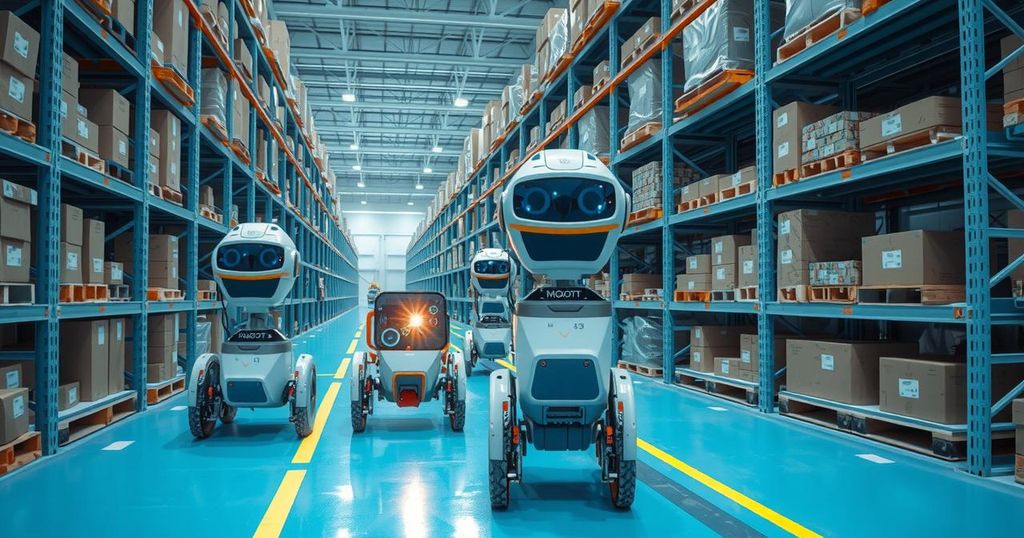DeepSeek: A New Era for AI Assistants and the Market Response
DeepSeek is an emerging AI assistant poised to rival established models like ChatGPT and Gemini, boasting superior efficiency and reasoning capabilities. Its rise led to a notable stock market reaction, particularly impacting major tech firms due to potential changes in hardware demand. The discussions at Penn State University reveal broader implications for the AI landscape, emphasizing both the benefits and challenges of integrating such technologies into workplaces.
Penn State University flagged the rise of DeepSeek, a new AI assistant rivaling giants like ChatGPT and Gemini while being more cost-efficient and energy-conscious. This stirred significant tremors in the stock market, slashing shares up to 21%. Major firms using generative AI are integrating these models into their services, amplifying concerns over their vast energy needs. Experts at Penn State clarified the implications of DeepSeek in the evolving AI landscape through a Q&A session.
DeepSeek is portrayed as a formidable AI assistant, particularly capable of tackling formal reasoning challenges, unlike many current AI models that falter in this area. Associate Professor Shomir Wilson shared his amazement at the swift market reaction to DeepSeek, emphasizing that while its efficiency claims appear promising, further evaluation is required. Its ability to perform formal reasoning tasks distinctly sets it apart in an increasingly crowded field of AI assistants.
The stock market’s response was dramatic, particularly affecting tech behemoths like Nvidia, which suffered a staggering 17% decline in its market value. Professor Akhil Kumar indicated that DeepSeek’s efficiency could lower chip demands, leading to uncertainty in the stock market’s reaction. While this innovation holds the potential to heighten AI’s efficiency, it might also generate a greater demand for hardware in the long run, shifting the balance of power in the tech industry.
The emergence of AI assistants, like DeepSeek, has vast implications for global workforces. Assistant Professor Mehmet Canayaz explained that these intelligent systems could perform business tasks autonomously, acting as digital employees while driving down costs without sacrificing task accuracy. This insight echoes sentiments from industry leaders recognizing that AI’s capabilities may soon rival those of skilled human workers, raising concerns about job security amid this technological revolution.
The distinctive approach of DeepSeek to generative AI may reshape future developments in the field. Assistant Professor Dana Calacci highlighted that DeepSeek’s focus on more specific training contributes to reduced development costs and energy use. Compared to industry counterparts, DeepSeek’s models are smaller and energy-efficient, democratizing access to AI technology and potentially curtailing the dominance of tech giants in the market.
The innovation of AI assistants like DeepSeek has rapidly taken center stage in discussions about the future of artificial intelligence, particularly amidst rising energy costs and increasing demand for efficient technology. With their capacity to handle complex reasoning tasks, DeepSeek’s capabilities directly challenge conventional models such as ChatGPT and Gemini. As organizations integrate generative AI into their operations, the implications of this technological advancement extend beyond mere efficiency—they touch on market dynamics, workforce impacts, and ethical concerns regarding AI deployment.
The rise of DeepSeek marks a pivotal moment in the AI landscape, challenging established models through its efficiency and reasoning capabilities. Market reactions signal a potential shift in demand dynamics for tech resources and reshape workforce landscapes as AI systems mature. As AI assistants become more capable, we face an evolving narrative where efficiency, accessibility, and ethical considerations converge, heralding a new era of artificial intelligence.
Original Source: www.psu.edu




Post Comment